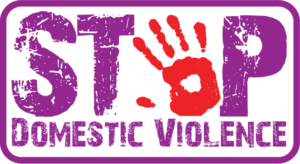Domestic Violence
Domestic Violence
Domestic violence is any action or behaviour that endangers the mental or physical health, safety, limb, or wellbeing of the victim. It comprises physical, sexual, verbal, emotional, and economic abuse. Domestic violence also includes harassment or harm inflicted on the victim to extort dowry or other property.

Acts of domestic violence that threaten the victim or any person related to them, or causes physical or mental harm also qualify as domestic violence.
Physical abuse constitutes conduct that causes bodily harm or pain, endangerment of life or limb, or impairment of health or development of the victim. Examples include assault, criminal intimidation, and criminal force. Sexual abuse is any action of sexual nature that humiliates, degrades, or violates the victim’s dignity.
Verbal and emotional abuse include name-calling, ridicule, humiliation, and insults that could result from not having a child or a male child. Repeated threats to cause pain to a person in whom the victim is interested also qualify as verbal and emotional abuse.
Economic abuse involves denying the victim economic or financial resources they are entitled to under any law or custom, including maintenance, household necessities, property, and rental related to the shared household.
Any act, omission, commission, or conduct of the abuser that constitutes domestic violence shall be determined based on the overall facts and circumstances of the case. Anyone who believes that an act of domestic violence has occurred or is likely to occur may inform the concerned protection officer without any liability, civil or criminal.
Under the DVC Act, 2005, reliefs can be sought. For instance, a magistrate can pass a protection order in favour of the victim after being satisfied that domestic violence has taken or is likely to take place.
The abuser is also restrained from alienating any assets, bank accounts, or property held by the parties jointly or separately. Violence towards the victim’s dependents, relatives, or anyone offering assistance is also prohibited.
Residence orders can also be issued to restrain the abuser from dispossessing or disturbing the victim’s possession of the shared household. The order can direct the abuser to remove themselves from the shared household or restrain them and their relatives from entering any portion of the shared household where the victim resides.
The abuser may be restrained from alienating, disposing of, or encumbering the shared household, renouncing their rights in the shared household, or directed to secure alternate accommodation for the victim or pay rent.
